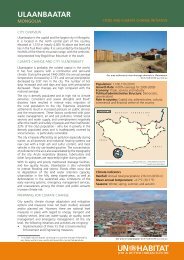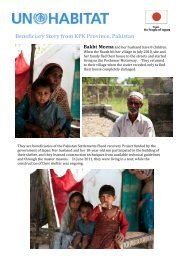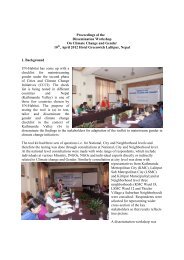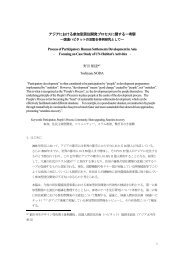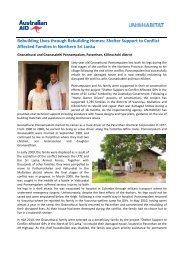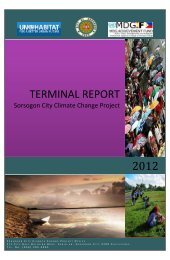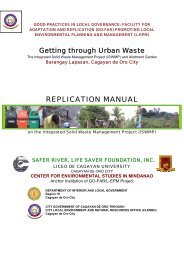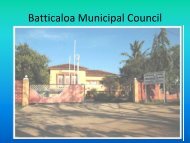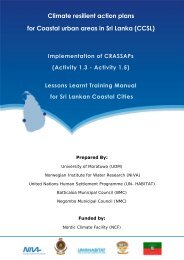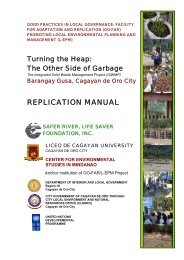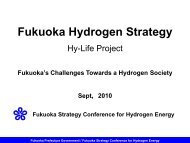Kotte Solid Waste Management Strategy
Kotte Solid Waste Management Strategy
Kotte Solid Waste Management Strategy
Create successful ePaper yourself
Turn your PDF publications into a flip-book with our unique Google optimized e-Paper software.
• Locking up and regular auctioning of stray cattle and other animals will be strictlyfollowed and implemented as a deterrent to socially irresponsible residents whopermit the cattle to graze in open areas.• Large and unsightly garbage bins will be withdrawn from streets and public places asan integral part of the Zero <strong>Waste</strong> approach. Instead, door-to-door collection methodswill be streamlined and strengthened to reduce the need for roadside dumping.Removal of bins will help keep the roadsides clean and un-littered. It will also helpreduce the menace of cattle and other animals feeding on garbage dumps which arecurrently a big problem in the city.• While withdrawing garbage bins, the Council will revive the practice of providinglitter-bins for pedestrians and commuters on busy roads and lanes. An average of onelitter bin for every 100 meters of road length will be adopted as the planning norm. Incrowded areas such as market place, railway stations and bus stands, the frequencywill be increased to 50 meters the minimum.• Roadside tree planting will be an important element of the solid waste managementapproach of the Municipal Council. Aprons will be created around each such tree toact as a receptacle for dry leaves collected from the surrounding area. The currentpractice of collecting and sending such compostible material away to landfill siteswill be stopped and such material will be used on-site to nurture plants and trees.Promotion of waste reduction at the source of generation• Awareness-creation and education programme will be organized in public places andschools to educate and mobilize the citizens to apply the basic principles of 4Rs andminimize waste and particularly to discourage the excessive use of polythene andplastic products.• Guidelines will be issued to supermarkets, shops and institutions to reduce wastegeneration through reuse/recycling of packaging materials. The guidelines willencourage the practice of price rebates for returning the empty bottles/containers suchas aerated water, jams, fruit cordials etc.,• Where possible, the users will be encouraged to re-use polythene and paper. The useof material and products such as plastic and paper plates, cups and serviettes will bediscouraged through public campaigns. Instead, the use of conventional and morepermanent material like ceramics crockery and cloth napkins will be promoted. Therestaurants, hotels and institutions will be encouraged to use re-usable material to thebest possible extent. Environment education programmes will be used for the purpose.• Grinding and reusing construction rubble will be an important aspect of the newstrategy. Currently, huge volumes of this waste go to the landfill thereby not only‘wasting’ the valuable waste but also reducing the life-time of the landfill site.



